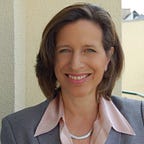Let’s change the way we think about refugee camps
TEDxKakumaCamp focused the eyes of the world on the stories of people rebuilding their lives after fleeing devastating conflicts.
I’ve just returned from Kakuma Camp, north western Kenya. There, together with a remarkable team, I co-hosted TEDxKakumaCamp — the first ever TEDx event in a refugee camp.
The guests may have left, the tent may be taken down, but this is just the beginning. I hope we’ve kickstarted a conversation that changes the way the world thinks about refugee camps.
Not only that, but the films of our refugee speakers will continue to shine a light on this neglected place and focus the eyes of the world on the stories of people rebuilding their lives here after fleeing devastating conflicts.
TEDxKakumaCamp was a huge logistical effort. There, in remote Turkana county, a four-day drive from the Kenyan capital Nairobi, our team built a state-of-the-art, fully-equipped event space.
And thanks to our sponsors, we were able to stream talks by our twelve expert speakers to tens of thousands of live viewers in the US, Latin America, Europe and Australia.
Watching their talks, I was struck by how far our refugee speakers had come. None of them had ever spoken on such a big stage.
But thanks to our incredible team of volunteer coaches, they were ready to tell their stories to the world. Not only that, they were able to do so with heart and soul. I’m so proud of them.
From the beginning, the TEDxKakumaCamp team set out to include a range of refugee experiences. We wanted to showcase tales of personal transformation, such as that of US fashion model Halima Aden who spent her childhood in Kakuma camp.
Or the story of athlete Pur Biel. Now a runner with the Refugee Olympic Team, he remains close to the family who adopted him when he arrived in the camp seeking refuge as a lone child.
But we also felt it was important to highlight the stories of those building a rich life right here, in Kakuma.
Stories like that of filmmaker Aminah Rwimo, who is producing international award-winning films edited on a laptop in the courtyard of her Kakuma home.
Listening to our speakers, I was struck by how important it is for all Kakuma residents that the time they spend here is productive.
That way, when peace arrives and it’s time to go home, they can return as skilled and educated citizens able to get on with the work of rebuilding their countries.
That’s why it was important to me that TEDxKakumaCamp also look to the wider implications of how we deal with the refugee response.
As I told Al Jazeera last week, UNHCR wants to transform the way we deal with large movements of refugees.
One of our new ideas is being piloted right here in Kakuma, in the neighbouring settlement of Kalobeyei.
There, refugees aren’t being sequestered in camps separated from the host population. Instead, they live together — and both groups benefit.
We heard from former Kalobeyei project manager Henok Ochalla about the benefits of this model, in which refugees become self-reliant, the economy is stimulated, and the local population also find livelihoods.
I was also inspired by my on-stage interview with Turkana county governor Josphat Nanok, one of the most enlightened politicians I’ve ever met. To him, hosting refugees isn’t a burden, it’s an economic opportunity.
And he has the facts to back him up. World Bank Economist Apurva Sanghi presented his research into the economic advantages seen when refugees enter an area.
If you missed it live, do watch the full videos of our ground-breaking event. Meanwhile, thanks once again to our TEDxKakumaCamp team for giving our speakers the world class platform they deserved.
Together, we’ve shown the world that given a stage, refugees can shine. Given opportunity, they can thrive.
TEDxKakumaCamp will be the first TEDx event hosted in a refugee camp, with refugees, and also for refugees. It is curated by myself Melissa Fleming and Dana Hughes with support from UNHCR and volunteer teams.
